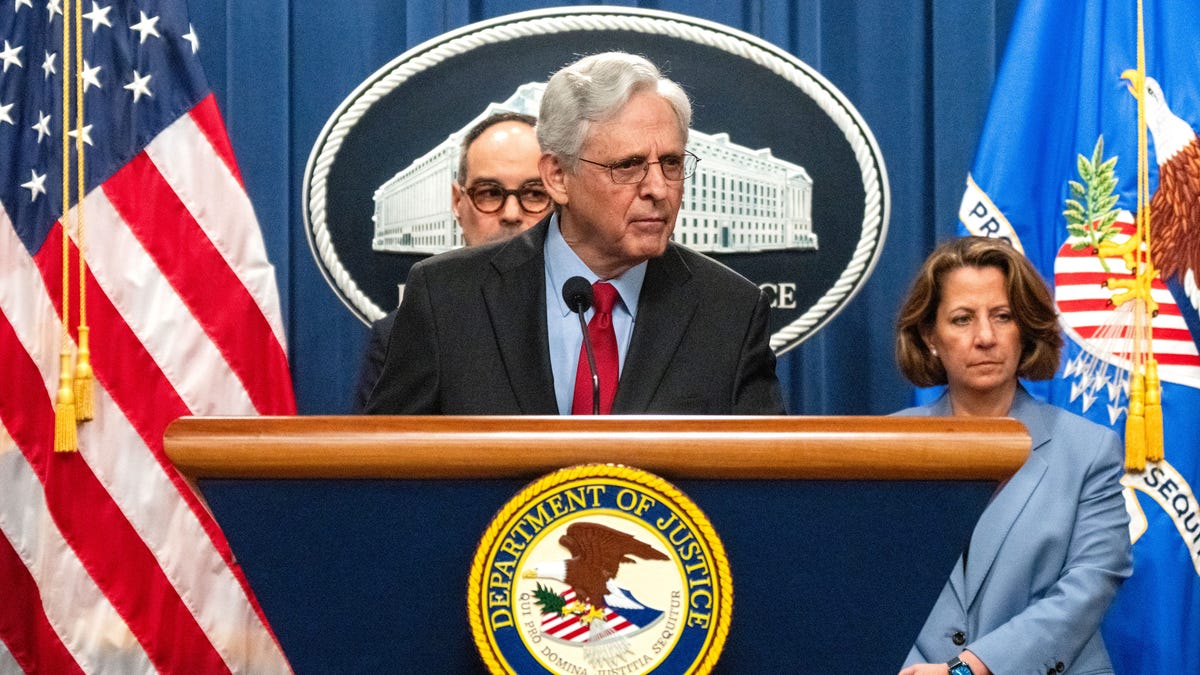New Hampshire
$30M in funding toward affordable housing – including new construction and repair grants – coming to NH | Manchester Ink Link

WASHINGTON, D.C. – More than $30 million in federal funding is coming to New Hampshire from the U.S. Department of Housing and Urban Development (HUD) to help address the state’s housing affordability crisis.
New Hampshire will receive $21,547,769 in grant funding toward affordable housing, community development and homeless assistance and $9,971,896 in Public Housing Repair grant funding to improve and modernize public housing stock in the Granite State.
New Hampshire’s Congressional delegation on Thursday provided statements detailing the significance of the funding when it comes to improving the lives of many of the state’s most vulnerable.
“Access to affordable housing is critical for the well-being of Granite State families, the workforce and our economy,” said Sen. Jeanne Shaheen. “New Hampshire faces a severe housing shortage, needing more than 60,000 additional units by 2030, and the lack of necessary housing is the primary cause of increasing costs. This federal funding will provide communities across New Hampshire with the resources they need to take steps to address housing affordability, invest in new construction and make improvements for Granite Staters living in public housing.”
“New Hampshire’s housing shortage is hurting families who are trying to buy a house or rent an apartment, and it is hurting businesses by preventing them from recruiting the workers that they need,” said Sen. Maggie Hassan. “This federal funding will lower rental costs, support new housing construction projects, and help address homelessness – all of which will help more Granite State communities thrive.”
“It’s no secret New Hampshire is experiencing a housing shortage—we need 90,000 new units by 2040 to meet expected demand,” said Congresswoman Annie Kuster. “I’m pleased to see these resources heading to the Granite State to help expand our affordable housing stock, ensure more Granite Staters have a safe place to call home, and support our communities and economy.”
“Stable housing is essential for an individual’s health, wellbeing, and safety,” said Congressman Chris Pappas. “As New Hampshire continues to face an extreme housing shortage, these funds will provide resources for public housing development and modernization, support for low-income renters and homeowners, help to individuals experiencing homelessness, and increase our affordable housing supply. I’ll continue working to support efforts to help Granite Staters find safe and affordable housing and address the root causes of the housing crisis.”
The New Hampshire Congressional delegation works at the federal level to help tackle the state’s housing affordability crisis. The delegation recently also promoted the $12 million in federal grants awarded for New Hampshire organizations that provide housing assistance and supportive services for people experiencing homelessness through HUD’s Continuum of Care (CoC) Program.
These funding streams can be used to establish innovative projects such as the Cottages at Back River Road in Dover, an energy-efficient workforce housing project.

New Hampshire
Manchester Motorcycle Crash Leaves One With Life-Threatening Injuries

MANCHESTER, NH — A motorcycle operator was seriously injured in an accident involving a car in Manchester on Wednesday.
Manchester police, fire, and AMR ambulance responded to a report of an accident at the intersection of Union and Willow Street. While en route, responders were advised CPR was being performed on the operator of the motorcycle. Firefighters and medics continued performing CPR and activated a trauma alert at the Elliot Hospital for a person with multi-system trauma.
At the scene, police could be examining a blue car stopped in the intersection just a short distance from the motorcycle. Police closed several roads around the scene of the accident. Manchester Police Accident Reconstruction Team will be investigating for the next several hours.
New Hampshire
6 Controlled Substance Clinics Unexpectedly Close In New Hampshire, Vermont

CONCORD, NH — The New Hampshire Department of Health and Human Services is warning communities of the potential for an increase in people suffering from drug withdrawal symptoms after the closure of a chain of facilities dispensing controlled substances.
The state said Wednesday the “unexpected closure” of New England Medicine and Counseling Associates had left many patients scrambling to find “alternate health care arrangements.” The company provided both medical marijuana certification as well as addiction medicine treatment.
It is unknown when the company closed its four locations in New Hampshire and two in Vermont. The company’s website is down, and a water shut-off notice was posted on the door of the Manchester location on South Willow Street. The company also had locations in Grantham, Newport, and Rochester, as well as Rutland and Colchester, VT.
“When patients who have been treated with medications like buprenorphine suddenly lose access to their medication, they are at increased risk of an opioid overdose and may have significant withdrawal symptoms if care is not reestablished quickly,” DHHS Chief Medical Officer Dr. Jonathan Ballard said. “The risks of using non-prescribed medications have never been higher due to the increasing presence of substances like fentanyl, and it is important for persons with an opioid use disorder to continue treatment.”
Emergency departments may see an increase in patients experiencing withdrawal symptoms, or who may be requesting buprenorphine, a medication for the treatment of opioid use disorder, until they can establish with another medical provider, the department said.
Patients of New England Medicine and Counseling were advised not to attempt to access “the illicit drug market” to obtain drugs. They are often not what they appear and may contain contaminants or other highly potent substances, such as fentanyl, that significantly increase the risk of overdose and death, the department said.
Families or residents concerned about the risk of overdose were advised to obtain naloxone at all New Hampshire Doorway locations or pharmacies.
Anyone needing assistance finding a new medical provider can call 211 in New Hampshire or VTHelplink (802-565-LINK) in Vermont.
Do you have a news tip? Please email it to tony.schinella@patch.com. View videos on Tony Schinella’s YouTube.com channel or Rumble.com channel. Follow the NH politics Twitter account @NHPatchPolitics for all our campaign coverage.
New Hampshire
Funds for clean school buses coming to hundreds of districts, White House says • New Hampshire Bulletin

WASHINGTON – As part of its ongoing effort to replace diesel-fueled school buses, the Biden administration on Wednesday said it will provide approximately 530 school districts across nearly all states with almost $1 billion to help them purchase clean school buses.
The initiative, part of the U.S. Environmental Protection Agency’s Clean School Bus Program rebate competition, will give funds to school districts in 47 states and the District of Columbia to help them buy over 3,400 clean school buses. Alaska, Hawaii, and Nevada are not part of this round of funding.
In New Hampshire, nine districts will get funding for the buses, according to the White House. They are (with the number of buses in parentheses): Concord (3), Derry (25), Hanover (3), Hudson (16), Lisbon (1), Litchfield (8), Moultonborough (7), Nashua (22), and Pembroke (25).
Nearly all of the clean school buses purchased will be electric, at 92 percent, according to the administration.
“This announcement is not just about clean school buses, it’s about the bigger picture,” EPA Administrator Michael S. Regan said during a call with reporters on Tuesday, prior to the announcement. “We are improving air quality for our children, reducing greenhouse gas pollution, and expanding our nation’s leadership in developing the clean vehicles of the future.”
Low-income, rural, and tribal communities – accounting for approximately 45 percent of the selected projects – are slated to receive roughly 67 percent of the total funding, per the administration.
Regan noted how “low-income communities and communities of color have long felt the disproportionate impacts of air pollution leading to severe health outcomes that continue to impact these populations.”
As for business and economic opportunities, Regan pointed to the development of new, well-paying manufacturing jobs and investment in local businesses stemming from the increasing demand for these clean school buses.
“As more and more schools make the switch to electric buses, there will be a need for American-made batteries, charging stations, and service providers to maintain the buses supercharging and reinvigorating local economies,” he added.
The Clean School Bus Program has now collectively awarded nearly $3 billion to fund approximately 8,500 electric and alternative fuel buses for over 1,000 communities across the United States, according to the administration.
The program started through the Bipartisan Infrastructure Law passed by Congress and signed by President Joe Biden, which includes $5 billion over five years to transform the country’s existing school buses with “zero-emission and low-emission models,” per the EPA.
Among many negative health and environmental effects, especially for communities of color, diesel exhaust exposure can lead to major health conditions such as asthma and respiratory illnesses, according to the EPA.
Exposure to diesel exhaust can also “worsen existing heart and lung disease, especially in children and the elderly,” the agency said.
-

 Culture1 week ago
Culture1 week agoFrom Dairy Daddies to Trash Pandas: How branding creates fans for lower-league baseball teams
-

 World1 week ago
World1 week agoPanic in Bishkek: Why were Pakistani students attacked in Kyrgyzstan?
-

 News1 week ago
News1 week agoRed Lobster files for bankruptcy after missteps including all-you-can-eat shrimp
-

 News1 week ago
News1 week agoThe states where abortion is on the ballot in November : Consider This from NPR
-

 Politics1 week ago
Politics1 week agoMichael Cohen swore he had nothing derogatory on Trump, his ex-lawyer says – another lie – as testimony ends
-

 Movie Reviews1 week ago
Movie Reviews1 week agoMai Movie Review: Emotionally powerful lead performances in this sensitive and heart-breaking romantic film
-

 News1 week ago
News1 week agoCity of Kyle falls short of ‘Kyle’ world record
-

 Politics1 week ago
Politics1 week agoAnti-Israel agitators interrupt Blinken Senate testimony, hauled out by Capitol police















